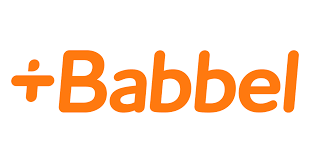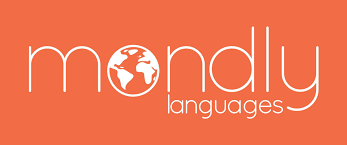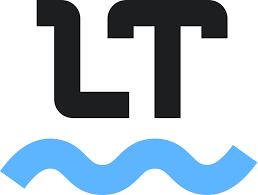Learning a new language can be a challenging task, but with the help of technology, it has become easier and more accessible than ever before. Language learning AI tools have emerged as a popular way to learn a new language, providing learners with a flexible and personalized experience. These tools use artificial intelligence to create a learning environment that adapts to the needs and preferences of each learner, making the process of learning a new language more engaging and effective.
Whether you're looking to learn a new language for personal or professional reasons, there are a plethora of language learning AI tools available to choose from. In this blog, we'll explore the best language learning AI tools that can help you master a new language, and we'll highlight their features and benefits to help you find the perfect tool for your language learning journey.
Duolingo

Duolingo is a language learning platform that offers a gamified approach to learning a new language. The app's interface is intuitive and user-friendly, with colorful graphics and animations that make language learning fun and engaging. Duolingo offers a wide variety of languages to learn, from Spanish and French to Klingon and High Valyrian. The app uses a combination of listening, speaking, reading, and writing exercises to help users develop their language skills. One unique feature of Duolingo is its use of crowns to track user progress, providing a sense of achievement and motivation to continue learning.
Pros
Cons
Overall Rank
Babbel

Babbel is an online language learning platform that provides a simple and interactive way to learn a new language. With its user-friendly interface and personalized learning approach, Babbel offers an effective way to master a new language. Babbel's language courses are designed to fit into a busy lifestyle and are available on various devices, making it possible to learn anywhere, anytime. The platform provides courses in 14 different languages, including Spanish, French, German, Italian, and Portuguese. Additionally, Babbel's speech recognition technology allows learners to practice their pronunciation, making language learning even more effective.
Pros
Cons
Overall Rank
Rosetta Stone

Rosetta Stone is a language learning software that aims to teach languages in an immersive way, through a combination of pictures, audio, and text. Its method is based on the idea that learning a new language should be like learning your first language, with a focus on context and conversation rather than grammar rules and memorization. The program offers a variety of languages to learn, from popular ones like Spanish and French to less commonly studied ones like Swahili and Persian. Users can track their progress and set personal goals through the app, and can also practice speaking and listening skills with the program's speech recognition technology. Overall, Rosetta Stone provides a user-friendly and engaging way to learn a new language.
Pros
Cons
Overall Rank
Busuu

Busuu is a language learning platform that offers interactive courses, personalized feedback from native speakers, and a community of learners from around the world. The platform uses a combination of listening, reading, writing, and speaking exercises to help users develop their language skills. What sets Busuu apart from other language learning apps is its emphasis on communication and interaction with other learners and native speakers. Users can practice their conversation skills through the app's chat feature and have their writing and speaking exercises reviewed by native speakers. Additionally, the platform offers language certification exams recognized by employers and educational institutions worldwide.
Pros
Cons
Overall Rank
Memrise

Memrise is a language learning platform that offers an interactive and gamified approach to learning new languages. With a wide range of courses, users can choose from over 200 languages to study, including less common languages such as Welsh, Icelandic, and Yiddish. The platform's unique approach to learning involves using a combination of images, audio, and repetition to help users remember new words and phrases more effectively. Memrise also offers a mobile app, allowing users to practice their language skills on the go, as well as a community forum where learners can connect with one another to share tips and tricks for language learning.
Pros
Cons
Overall Rank
Lingvist

Lingvist is a language-learning platform that uses artificial intelligence and machine learning to personalize the learning experience for each student. It offers a wide variety of courses for different levels of proficiency and aims to teach practical vocabulary and grammar in a contextualized way. One of the unique features of Lingvist is its adaptive learning algorithm that adjusts the difficulty of the exercises based on the user's performance and progress. This allows for an efficient and engaging learning experience that adapts to the individual needs of each student. Moreover, the platform offers a user-friendly interface and a mobile app that allows users to learn on-the-go. Overall, Lingvist is a great tool for anyone looking to learn a new language in a personalized and efficient way.
Pros
Cons
Overall Rank
FluentU

FluentU is a language learning platform that offers a unique approach to mastering a new language. It uses real-world videos, such as news, movie trailers, and music videos, and turns them into personalized language lessons. Each video comes with interactive captions that can be clicked on to see the definition and usage of a word, and users can also access flashcards and exercises based on the video content. This immersive approach to language learning not only helps users improve their comprehension and vocabulary but also gives them a taste of the culture and context behind the language they are learning.
Pros
Cons
Overall Rank
Mondly

Mondly is an innovative language-learning platform that offers a unique and interactive approach to learning a new language. With its user-friendly interface, Mondly makes language learning fun and engaging, offering a variety of lessons that cover all aspects of language learning, from grammar and vocabulary to pronunciation and conversation. One of the standout features of Mondly is its use of virtual reality technology, which allows learners to immerse themselves in real-life scenarios and practice their language skills in a simulated environment. Additionally, the platform offers personalized feedback and adaptive learning, meaning that lessons are tailored to the learner's individual needs and progress.
Pros
Cons
Overall Rank
Lingoda

Lingoda is an online language learning platform that provides live classes with certified teachers in a variety of languages, including English, Spanish, French, German, and more. One of the unique features of Lingoda is the flexibility it offers to students, allowing them to schedule classes at any time and from anywhere, as long as they have an internet connection. Additionally, Lingoda offers a structured curriculum with personalized feedback, allowing students to progress at their own pace and receive individualized attention from their teachers. Overall, Lingoda is an excellent choice for anyone looking to learn a new language, regardless of their skill level or schedule.
Pros
Cons
Overall Rank
Pimsleur

Pimsleur is a language learning program that focuses on teaching new languages through audio lessons. Unlike other language learning methods that emphasize memorizing vocabulary and grammar rules, Pimsleur prioritizes conversational skills by immersing the learner in the language and helping them develop their speaking and listening abilities. By listening to native speakers, repeating phrases, and practicing pronunciation, learners can build confidence and fluency in a new language. The program is particularly effective for beginners, as it provides a strong foundation in essential language skills. Additionally, the program offers a wide range of languages to choose from, making it accessible for learners of all levels and interests.
Pros
Cons
Overall Rank
Drops

Drops are small, liquid spheres that fall through the air due to gravity. They are commonly seen during rain showers, as raindrops fall from the clouds and onto the ground below. Drops can come in different sizes and can be made of various substances, such as water or even molten metal. Drops can also be used in various applications, such as in scientific experiments or in cooking, where a few drops of a particular ingredient can make a significant difference in the taste of a dish. Drops may seem insignificant, but they play an essential role in our daily lives and the world around us.
Pros
Cons
Overall Rank
Anki

Anki is a powerful, flexible and user-friendly flashcard app that allows users to create and review digital flashcards on a variety of devices. With its intuitive interface, users can quickly create decks of cards and customize them with images, audio and video. One of the key benefits of Anki is its spaced repetition system, which uses algorithms to determine when each card should be reviewed to maximize retention. This system ensures that users review cards they are struggling with more frequently, while gradually spacing out reviews for cards they already know well. Anki is also highly customizable, allowing users to install add-ons to enhance the app's functionality or to create their own add-ons using Python programming language. Overall, Anki is a valuable tool for students, language learners, and anyone seeking to improve their memory and retention.
Pros
Cons
Overall Rank
LanguageTool

LanguageTool is an open-source grammar and spell checker that can detect errors in over 20 languages. Unlike other spell checkers that rely on simple pattern matching, LanguageTool uses sophisticated algorithms to analyze the context of each sentence and suggest corrections that are tailored to the specific context. This makes LanguageTool a powerful tool for anyone looking to improve their writing skills or ensure that their written communication is error-free. Additionally, LanguageTool offers a variety of integrations and plugins for popular text editors like Microsoft Word and Google Docs, as well as a web-based interface that allows users to copy and paste text directly into the tool.
Pros
Cons
Overall Rank
Grammarly

Grammarly is a widely popular digital writing assistant that helps users improve their grammar, spelling, and writing style. It provides a comprehensive set of tools and features that enable writers to produce clear, concise, and error-free content. One of the most significant advantages of Grammarly is its ability to identify complex grammar errors and provide suggestions on how to fix them. It also provides insights on the tone of the text, sentence structure, and readability. Grammarly is accessible across different platforms, including web browsers, Microsoft Word, and mobile devices, making it a versatile writing tool.
Pros
Cons
Overall Rank
In conclusion, language learning AI tools have revolutionized the way we learn new languages. These tools have made language learning more accessible, flexible, and personalized. With the help of AI-powered language learning tools, language learners can now practice their language skills anytime, anywhere, and at their own pace. Some of the best language learning AI tools available today include Duolingo, Babbel, Rosetta Stone, Memrise, and Lingoda. These tools offer a variety of features that cater to different learning styles, making language learning a fun and engaging experience. Additionally, the gamification elements in these tools make learning more enjoyable and rewarding. As technology continues to advance, we can expect language learning AI tools to become even more sophisticated and effective. With the help of AI, language learners can look forward to personalized learning experiences that cater to their individual needs and goals. Overall, language learning AI tools are a game-changer for anyone looking to learn a new language, and they offer endless possibilities for language learners worldwide.
